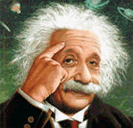| 阅读理解 Intelligence Quotient  I.Q.stands for “Intelligence Quotient” which is a measure of a person's intelligence found by means of an intelligence test.Before marks gained in such a test can be useful as information about a person they must be compared with some standard or norm(规范).It is not enough simply to know that a boy of thirteen has scored say ninety marks in a particular test.To know whether he is clever average or dull his marks must be compared with the average achieved by other boys of thirteen in that test. In 1906 the psychologist Alfred Binet(1857--1911) devised the standard by which intelligence has since been assessed.Binet was asked to find a method of selecting all children in the schools of Paris who should be taken out of ordinary classes and put in special classes for defectives(后进生).The problem made him realize the need for a standard for measuring intelligence and he hit upon the very simple concept of “mental age”.  First of all he invented a variety of tests and put large numbers of children of different ages through them.He then found at what age each test was passed by the average child.For instance he found that the average child of seven could count backwards from 20 to 1 and the average child of three could repeat the sentence:“We are going to have a good time in the country.” Billet arranged the various tests in order of difficulty and used them as a scale against which he could measure every individual.If for example a boy aged twelve could only do tests that were passed by the average boy of nine Binet held that he was three years below average and that he had a mental age of nine. The concept of mental age provided Binet and through him other psychologists with the required standard.It enabled him to state scores in intelligence tests in terms of a norm merely by subtracting(减去)the “mental” age of a child from his “chronological” age(实际年龄).Then the boy in the example given would be “three years retarded”(迟缓、耽误).Later the “mental ratio” was introduced; that is to say the ratio of the mental age to the chronological age.Thus a boy of twelve with a mental age of nine has a mental ratio of 0 . 75. The “mental age” measurement was then replaced by the more famous I.Q(intelligence quotient).The “I.Q.” is the mental ratio multiplied by 100.For example a boy of twelve with a mental age of nine has an “I.Q.” of 75.Clearly since the mental age of the average child is equal to the chronological age the average “I.Q.” is 100. | 
